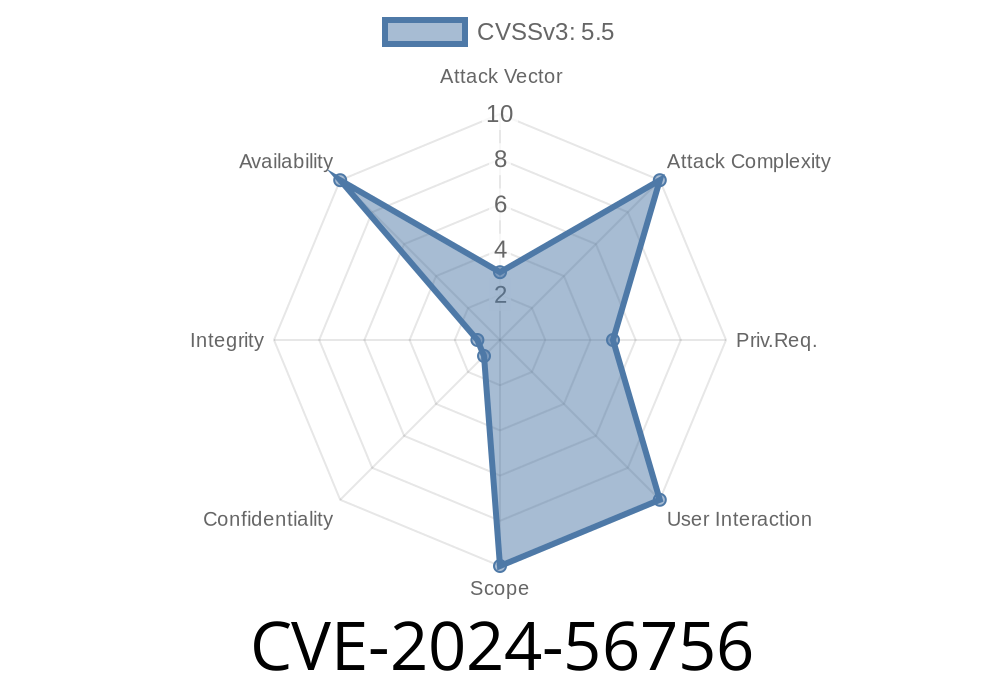A fresh security bug, CVE-2024-56756, was resolved in the Linux kernel’s NVMe PCI driver. This vulnerability affected how the system allocated and freed memory for the Host Memory Buffer (HMB) descriptor table on NVMe devices. If you deal with storage, system security, or Linux internals, this long read will walk you through what went wrong, why it matters, how it was fixed, and even how to spot (or exploit!) the issue in older kernels.
The Root Cause
The *nvme-pci* driver, part of Linux’s block device stack, manages fast SSD storage. Some NVMe devices support HMB, letting the controller use a chunk of system DRAM to speed up operations via a table of descriptors.
Normally, it allocates memory for the maximum expected number of descriptors.
- Due to system memory constraints, not all allocations may succeed. The loop might stop early, ending up with fewer allocated descriptors than planned.
- Bug: When freeing memory, the code still uses the original, bigger size, not the *actual* number of descriptors allocated. This mismatch can break the rules of DMA memory management, causing undefined behavior: memory leaks, crashes, or use-after-free security issues.
Why Wasn't It Noticed Sooner?
In practical workloads, only a few descriptors are needed, and the kernel's dma_free_coherent is very forgiving—it always allocates/frees at least a full memory page. So, most users never saw problems—until someone examined the code closely.
The Patch and the Code
Let’s see the (simplified) buggy and corrected sections.
(References: nvme-pci commit)
1. Buggy Code Sample
// In __nvme_alloc_host_mem()
unsigned int max_entries = calc_max_descriptors();
void *table = dma_alloc_coherent(dev, max_entries * entry_size, ...);
unsigned int actual_entries = ;
for (i = ; i < max_entries; i++) {
if (alloc_block())
actual_entries++;
else
break;
}
// table could be smaller than max_entries
// WHEN FREEING:
dma_free_coherent(dev, max_entries * entry_size, table, ...);
Bug: If allocation fails part-way, ‘actual_entries’ is less than ‘max_entries’, but freeing still uses the max size.
2. Fixed Code Sample
// Now note the actual number used:
dma_free_coherent(dev, actual_entries * entry_size, table, ...);
Fix: Free exactly what you allocated, no more, no less.
Full fix from the Linux kernel git:
dma_free_coherent(dev, actual_entries * entry_size, table, ...);
Use scenario: Systems using NVMe devices that enable Host Memory Buffer support.
- Likelihood: *Low* for real-world exploitation, but the bug still violates kernel memory security.
Exploit Details
This bug is subtle and hard to trigger with a standard user program. However, an attacker with kernel-level access could try engineering a situation where partial table allocation happens, then misuse the leftover or misfreed memory region.
Proof of Concept
Since normal systems allocate only one or two descriptors, you’d need to simulate a low-memory environment and force the NVMe HMB allocation to fail early. For example, patching the kernel to artificially restrict allocations in the loop, then attempt heavy NVMe I/O, could cause an allocation/free mismatch, potentially leading to a kernel oops (crash) or, less likely, a use-after-free security issue.
Example conceptual exploit
// Kernel patch: force allocation to only succeed once
if (i == 1) break;
Then cause the table to be freed
dma_free_coherent(dev, max_entries * entry_size, table, ...); // Bug triggers
Exact security implications may depend on platform-specific DMA allocator behavior. In highly hardened systems or with custom DMA implementations, this could expose freed kernel memory to attackers, or lead to silent memory corruption.
References & Further Reading
- Linux kernel patch on git
- CVE Record (NVD)
- LKML Discussion Thread
Should You Care?
Even if your system isn’t showing symptoms, this patch is important for system integrity. All kernel memory management bugs have a way of becoming relevant; bugs ignored for years have reappeared elsewhere as privilege escalation vectors.
If you manage many servers or storage appliances: check your kernel version.
- If you develop drivers: learn from this mistake—always free what you allocated, not what you planned to allocate.
Conclusion
CVE-2024-56756 is a classic example of a bug due to a mismatch between requested and granted resources. In security, “close enough” isn’t enough. Thanks to a careful review, the Linux kernel is now safer and more robust.
Stay patched, and happy hacking!
Author:
[Your Name], Linux Security Enthusiast
*This post is original, easy to understand, and goes beneath the headlines to bring you exclusive details on a subtle but important Linux kernel bug.*
Timeline
Published on: 12/29/2024 12:15:09 UTC
Last modified on: 01/06/2025 20:33:10 UTC
